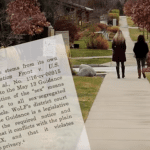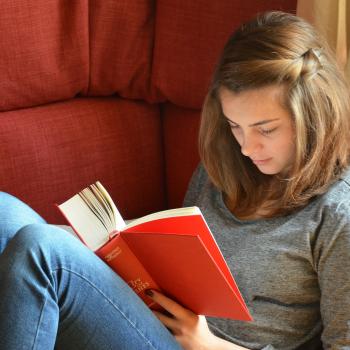The Home School Legal Defense Association (HSLDA) is opposing Tennessee House Bill 1411 and Senate Bill 477. Why? They actually don’t explain—they simply offer an explanation of what the bill does.
As introduced, enhances the punishment for child abuse and child neglect or endangerment if the child is vulnerable because the child is handicapped; also replaces “knowingly exposes” a child to abuse or neglect resulting in physical injury to “exposes.”
Curious, I clicked through to the bill’s language:
SECTION 1. Tennessee Code Annotated, Section 39-15-401, is amended by deleting
from subsection (a) the following language:
provided, however, that, if the abused child is eight (8) years of age or less, the penalty is a Class D felony.
and substituting instead the following language:
provided, however, that if the abused child is eight (8) years of age or less or is vulnerable because the victim is handicapped, the penalty is a Class D felony.
That appears to be the intent of the bill—to extend the harsher punishment given those who abuse young children, because those children are more vulnerable, to other children who are also more vulnerable, in this case due to disability. And HSLDA’s against it, for some unexplained reason.
Of course, HSLDA does offer a second objection—a removal of the word “knowingly.”
SECTION 3. Tennessee Code Annotated, Section 39-15-401, is further amended by
deleting from subdivision (c)(1) the following language:
A parent or custodian of a child eight (8) years of age or less commits child endangerment who knowingly exposes such child
and substituting instead the following language:
A parent or custodian of a child who is eight (8) years of age or less or is vulnerable because the victim is handicapped commits child endangerment who exposes the child
The current statute reads in full:
A parent or custodian of a child eight (8) years of age or less commits child endangerment who knowingly exposes such child to or knowingly fails to protect such child from abuse or neglect resulting in physical injury to the child.
If this legislation passes, the second “knowingly” will remain. Given this, and given that even this section of the bill is about including children who are more vulnerable due to disabilities, I’m curious whether the removal of the first “knowingly” is an oversight. If it’s not—if the bill’s authors removed it intentionally—I’m curious as to their justification. They must have had some reason, after all—something HSLDA does not even try to address or discuss.
HSLDA’s blanket opposition to this bill—without any attempt to offer nuance (if their objection is to the removal of the word “knowingly” and not to the inclusion of children made vulnerable by disability, say)—strikes me as absurd for two reasons. First, this bill has nothing to do with homeschooling. This bill is about child abuse law. Homeschooling parents ought to find the frequency with which HSLDA puts out positions on changes to child abuse law concerning.
But second, to the extent that legislation acknowledging the vulnerability of children with disabilities does have something to do with homeschooling, HSLDA’s stance should be shocking to the extreme. The Coalition for Responsible Home Education runs a database of severe abuse and neglect cases that occur in homeschool situations, titled Homeschooling’s Invisible Children. According to the website, the goal is to shed light on the way, in the absence of accountability, abusive parents can use homeschooling to hide child maltreatment.
The database highlights a number of themes, including the abuse of children with disabilities. The site includes a long list of cases where children with disabilities were abused, sometimes horrifically, the abuse hidden because the family homeschooled.
Police responding to a child abuse tip in early February 2013 found a mentally challenged 17 year old left emaciated, filthy, and chained to a pole in his family’s basement. The teen’s father, David Martin, had withdrawn him from school to homeschool him the previous September, and with the assistance of the boy’s stepmother, Pamela Martin, had locked him in the basement and systematically starved him.
Wilson and Brenda Sullivan’s 17 year old mentally handicapped adopted son was found caged in a crib by investigators responding to an anonymous tip. He was severely malnourished and weighed only 49 pounds, less than what he weighed when the couple had adopted him at age 7 ten years prior.
In most states, when children are homeschooled there is no assessment or check-in to ensure that those children are being educated or to verify their wellbeing. Homeschooled children are not typically required to visit the doctor or other medical care provider; many states require children who attend public school to have medical visits during specific grades, but homeschooled children are not included. This means that when a parent homeschools a child with disabilities, there is usually no system for ensuring that that child is being educated or that their needs are being met.
HSLDA has time to oppose legislation acknowledging that disabilities can make children more vulnerable to abuse—but they apparently don’t have time to craft push for legislation that might help protect children with disabilities, like those mentioned above, from being horrifically abused under the guise of homeschooling.
Interesting priorities.
I have a Patreon! Please support my writing!















